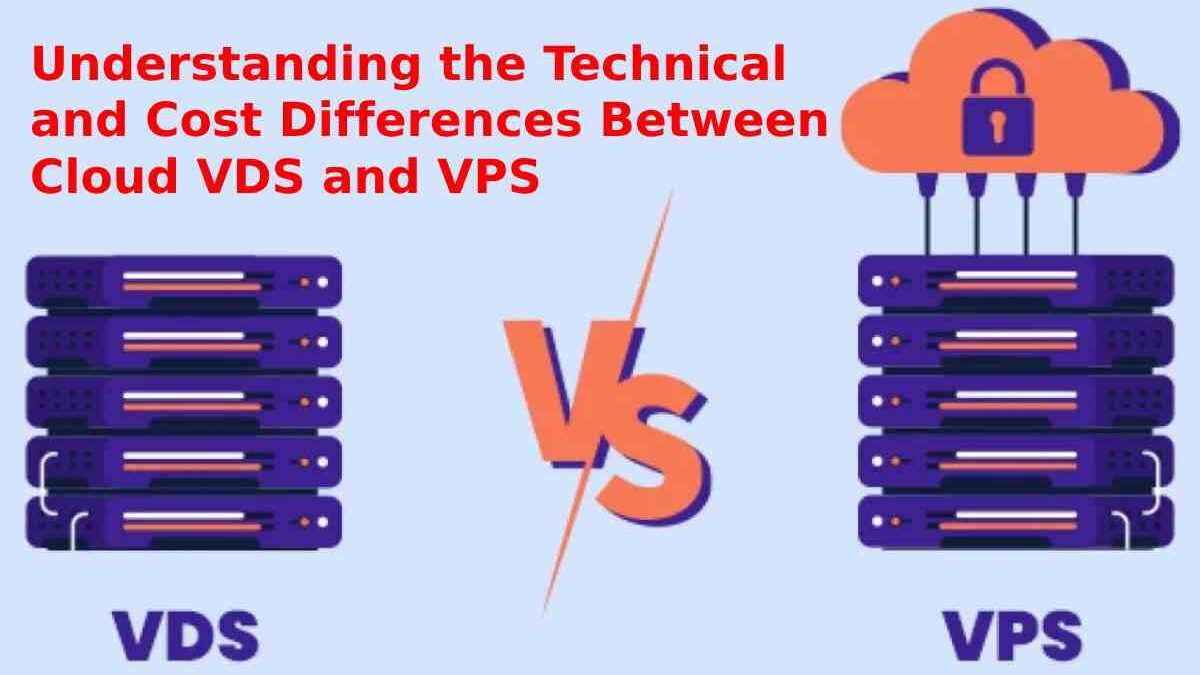When it comes to choosing a hosting solution, the terminology can get confusing—especially with similar-sounding options like VPS (virtual private server) and Cloud VDS (virtual dedicated server). While both offer virtualized hosting environments, their underlying technology, performance capabilities, and pricing structures differ in key ways.
Whether you’re running a website, deploying applications, or managing complex workloads, knowing the distinctions can help you make a smarter, cost-effective decision. With that in mind, read on for more information.
Table of Contents
What is a VPS?
A virtual private server is a hosting environment that simulates a dedicated server within a shared physical server. In simpler terms, you’re sharing a physical machine with other users, but your VPS is isolated and comes with its own set of allocated resources—like CPU, RAM, and storage.
VPS is a popular choice for small to medium-sized businesses and developers who need more control than shared hosting can offer but don’t require the full power of a dedicated server. It’s affordable and relatively easy to manage, especially for those who want a scalable solution that doesn’t break the bank.
However, since multiple VPS instances run on the same physical hardware, resource contention can become a problem—especially during peak usage times. This can lead to slower performance, depending on how the host manages their virtualization layers and resource allocations.
What is a Cloud VDS?
A Cloud VDS bridges the gap between traditional VPS and dedicated servers. Unlike a VPS, which may share key hardware components, a Cloud VDS provides guaranteed resources that are isolated at a deeper level. This setup means you’re getting a performance much closer to that of a dedicated server, but in a flexible, virtualized format.
With a Cloud VDS, users enjoy dedicated CPU cores, higher memory bandwidth, and often better disk I/O performance. This makes it ideal for resource-intensive tasks like large-scale databases, high-traffic websites, or gaming servers. Additionally, cloud-based infrastructure offers built-in redundancy and scalability, which adds another layer of reliability.
Key Technical Differences
Here’s a quick breakdown of how Cloud VDS and VPS differ in technical terms:
- Resource Allocation: VPS shares CPU and I/O bandwidth with other users; Cloud VDS offers dedicated CPU cores and better memory access.
- Isolation Level: Cloud VDS provides deeper isolation, often at the hypervisor or kernel level, improving stability and performance.
- Scalability: Both can scale, but Cloud VDS usually offers more seamless and powerful vertical scaling.
- Performance: Cloud VDS tends to be more consistent and suitable for high-load applications.
If performance and reliability are critical to your operation, Cloud VDS is likely the better choice. VPS still holds its own for moderate workloads, development environments, and budget-conscious projects.
Cost Considerations
From a pricing standpoint, VPS is generally more affordable. It’s aimed at users who need a balance between price and control. Entry-level VPS plans can cost just a few dollars per month, making them ideal for new or growing websites.
Cloud VDS, on the other hand, is more expensive but offers better value for those who need dedicated resources and stronger performance. The pricing reflects the hardware and infrastructure investment needed to ensure each user gets what they’re paying for—dedicated CPU, robust bandwidth, and enterprise-level uptime.
While VPS pricing is predictable, some Cloud VDS plans offer pay-as-you-go or usage-based billing, which can be beneficial or costly depending on your usage patterns.
Which One Should You Choose?
Choosing between a Cloud VDS and a VPS comes down to what you need:
- Choose VPS if you’re running smaller websites, development environments, or applications with moderate traffic.
- Choose Cloud VDS if your project demands high performance, reliability, and scalability.
Ultimately, both have their place in the hosting world. VPS is great for getting started, while Cloud VDS is built for those ready to scale and invest in a more robust infrastructure.

